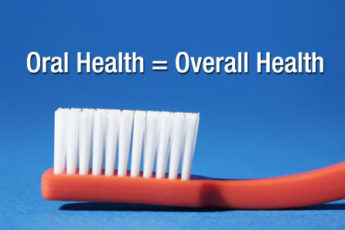
Oral diseases become more complex over time—affecting a person’s ability to eat, concentrate, and be productive in school or work. Early intervention makes a huge difference, but over 108 million children and adults lack dental insurance.
Join Nurse Rona, Dr. Jared Fine, and Dr. Ariane Terlet, to discuss the importance of oral health.
Taking good care of your mouth, teeth and gums is a worthy goal in and of itself. Good oral and dental hygiene can help prevent bad breath, tooth decay and gum disease—and can help you keep your teeth as you get older.
Researchers are also discovering new reasons to brush and floss. A healthy mouth may help you ward off medical disorders. The flip side? An unhealthy mouth, especially if you have gum disease, may increase your risk of serious health problems such as heart attack, stroke, poorly controlled diabetes and preterm labor.
The case for good oral hygiene keeps getting stronger. Understand the importance of oral health — and its connection to your overall health.
What’s in your mouth reveals much about your health
What does the health of your mouth have to do with your overall health? In a word, plenty. A look inside or a swab of saliva can tell your doctor volumes about what’s going on inside your body.
Many conditions cause oral signs and symptoms
Your mouth is a window into what’s going on in the rest of your body, often serving as a helpful vantage point for detecting the early signs and symptoms of systemic disease — a disease that affects or pertains to your entire body, not just one of its parts. Systemic conditions such as AIDS or diabetes, for example, often first become apparent as mouth lesions or other oral problems. In fact, according to the Academy of General Dentistry, more than 90 percent of all systemic diseases produce oral signs and symptoms.
Saliva: Helpful diagnostic tool
Your dentist from dental crowns sarasota fl can collect and test saliva to detect for a variety of substances. For example, cortisol levels in saliva are used to test for stress responses in newborn children. And fragments of certain bone-specific proteins may be useful in monitoring bone loss in women and men prone to osteoporosis. Certain cancer markers are also detectable in saliva.
Routine saliva testing can also measure illegal drugs, environmental toxins, hormones and antibodies indicating hepatitis or HIV infection, among other things. In fact, the ability to detect HIV-specific antibodies has led to the production of commercial, easy-to-use saliva test kits. In the future, saliva testing may replace blood testing as a means of diagnosing and monitoring diseases such as diabetes, Parkinson’s disease, cirrhosis of the liver and many infectious diseases.
Protection against harmful invaders: How saliva disables bacteria and viruses
Saliva is also one of your body’s main defenses against disease-causing organisms, such as bacteria and viruses. It contains antibodies that attack viral pathogens, such as the common cold and HIV. And it contains proteins called histatins, which inhibit the growth of a naturally occurring fungus called Candida albicans. When these proteins are weakened by HIV infection or other illness, candida can grow out of control, resulting in a fungal infection called oral thrush.
Saliva also protects you against disease-causing bacteria. It contains enzymes that destroy bacteria in different ways, by degrading bacterial membranes, inhibiting the growth and metabolism of certain bacteria, and disrupting vital bacterial enzyme systems.

